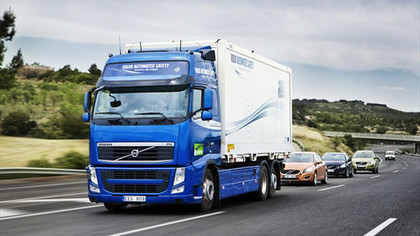Road rage drivers will bully self-driving cars, suggests study
This is why we can’t have nice things

When our roads are entirely populated by self-driving cars it's expected that they'll be safer and more pleasant to drive on, but while we transition towards this, aggressive drivers are likely to make things difficult.
In a recent study into social attitudes towards self-driving technology, The London School of Economics and Goodyear found that aggressive and combative drivers are looking forward to the widespread adoption of self-driving technology than others.
This isn’t because they think it will improve the safety of the roads they’re driving on and give them fewer reasons to work themselves into a road rage. It’s actually because they think these self-driving cars will be easier to bully than cars driven by other humans.
Taking advantage
As you’d hope, self-driving cars will be programmed to avoid accidents so they’ll always hit the brakes rather than take risks driven by aggressive impulses like humans.
In light of this, the more aggressive drivers questioned in the survey said they’re likely to take advantage and treat self-driving cars more like “learner drivers” and “mug them right off.”
According to one respondent, it’ll be easy to “nip around” autonomous cars when they stop and another said “I’ll be overtaking all the time because they’ll be sticking to the rules.”
This highlights a big problem that will arise from any attempts to bring fully-autonomous cars onto roads that are still populated by normal drivers. It’s difficult to program the natural intuition drivers develop from years on the road into a machine. With combative drivers taking advantage of these extra cautious vehicles it could actually result in the roads becoming less efficient.
Get daily insight, inspiration and deals in your inbox
Sign up for breaking news, reviews, opinion, top tech deals, and more.
Fortunately, there are a few ways around problems caused by aggressive drivers, the most obvious being the creation of lanes dedicated to self-driving vehicles.
Outside of this, any acts of needless aggression will likely be captured by the cameras these self-driving cars are fitted with making it easy to track any driver that attempts a hit and run.
Built-in snitch function
It’ll be hard to justify taking the risk of a bump with a self-driving car when there’s no way to hide your fault and avoid the resulting soar in your insurance premium.
Aggressive drivers may think they’ll rule the roads when self-driving cars are introduced, but it’s actually highly likely that they’ll be bullied into caution by soaring insurance costs applied to non-autonomous vehicles.
Many drivers find the idea of fully-autonomous vehicles uncomfortable. In fact, another study from The London School of Economics, showed that 64% of UK survey respondents felt that “as a point of principle, humans should be in control of their vehicles.” Moreover, 85% of respondents agreed that “autonomous vehicles could malfunction.”
Of course, it's not just other drivers that could take advantage of autonomous vehicles - there's a risk that pedestrians and cyclists will take advantage of the safety priorities of these cars in order to dash out in front of them. The prospect of this creates problems for the engineers of these cars; whose safety will the car prioritise, the pedestrian or the passenger?
Unfortunately, if this most recent study is anything to go by, humans are just as unreliable and prone to malfunction as the machines they're driving. It's unlikely we're going to find a method of transport that's entirely risk free.
Before we're able to bring self-driving cars onto our roads, though, it's clear there are some difficult issues that need to be ironed out.
Emma Boyle is TechRadar’s ex-Gaming Editor, and is now a content developer and freelance journalist. She has written for magazines and websites including T3, Stuff and The Independent. Emma currently works as a Content Developer in Edinburgh.
